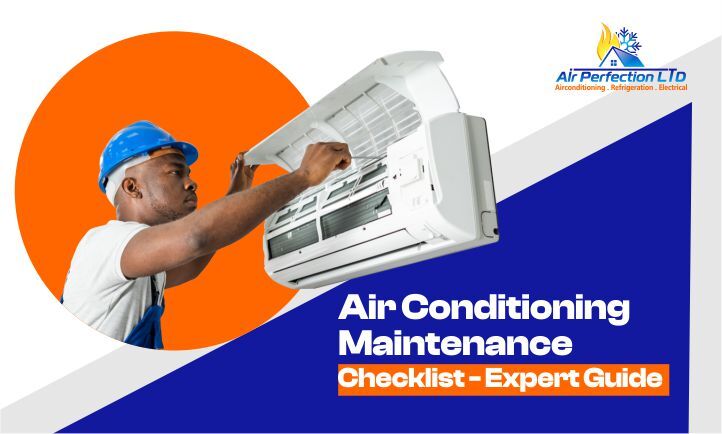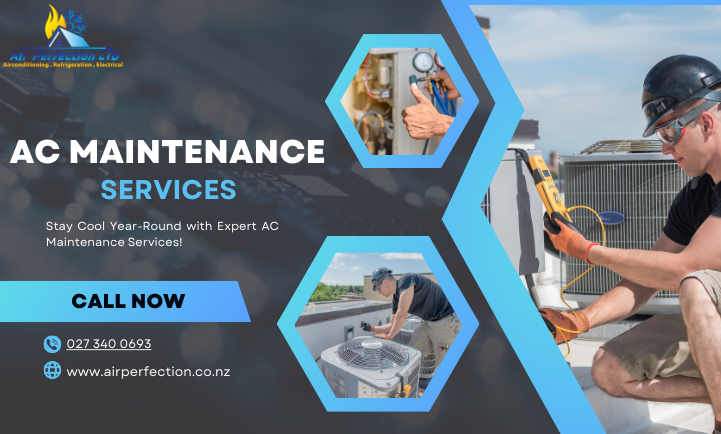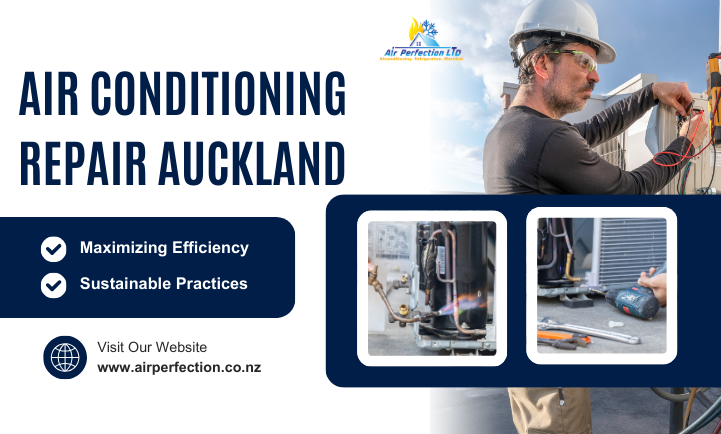Regular air conditioning maintenance is crucial for your system’s efficient and cost-effective operation. Proper maintenance ensures that your air conditioning system runs smoothly, providing you with the comfort you need, especially during the hot summer.
Air conditioning systems come in various types, each with unique working mechanisms. Whether you have a split, central, or window unit, understanding how these systems operate is fundamental to implementing the right air conditioning system maintenance practices.
This guide explores the significance of routine checkups, financial savings, and improved energy efficiency resulting from a well-maintained air conditioner. With detailed insights and practical tips, this guide aims to help you understand the importance of air conditioning maintenance and how to carry it out effectively to reap long-term benefits.
Must Read: What Is the Best Air Conditioning Unit?
Air Conditioning Maintenance Checklist
Regular air conditioning system maintenance is essential for its efficient operation and longevity. Here is a comprehensive checklist to ensure your air conditioner remains in top condition throughout the year.
1. General Maintenance
- Inspect the Thermostat: Ensure the thermostat is working correctly and calibrated. Upgrade to a programmable thermostat for better control and energy savings.
- Check Electrical Connections: Tighten all electrical connections and measure voltage and current on motors. Faulty connections can cause unsafe operation and reduce the lifespan of major components.
- Lubricate Moving Parts: Lubricate all moving parts to reduce motor friction and improve efficiency.
2. Air Filter Maintenance
- Inspect and Replace Filters: Check filters monthly and replace them if they are dirty. This is crucial for maintaining airflow and indoor air quality.
- Set a Regular Schedule: Filters should be replaced every 1-3 months, depending on usage and air quality.
3. Coil Maintenance
- Clean the Evaporator and Condenser Coils: Dirty coils reduce the system’s ability to cool your home. Clean the coils at least once a year.
- Check Coil Fins: Ensure the coil fins are not bent. Use a fin comb to straighten any bent fins to maintain proper airflow.
4. Condensate Drain
- Clear the Condensate Drain: Ensure the drain is clear of debris to prevent water damage and high humidity levels. A clogged drain can cause water damage and affect indoor humidity levels.
- Check the Drain Pan: Inspect the drain pan for leaks or standing water.
5. Outdoor Unit Maintenance
- Inspect and Clean the Outdoor Unit: Remove debris, leaves, and dirt from the condenser unit to ensure proper airflow.
- Check the Fan and Motor: Inspect the fan blades for damage and clean them. Check the motor for signs of wear and lubricate if necessary.
6. Ductwork Maintenance
- Inspect Ductwork for Leaks: Check for and seal any leaks in the ductwork to prevent loss of cooled air and improve efficiency.
- Clean Ducts: Have the ducts professionally cleaned every 3-5 years to remove dust, mold, and allergens.
7. Refrigerant Level
- Check Refrigerant Levels: Low refrigerant levels can indicate a leak. Ensure the refrigerant levels are adequate and have a professional repair any leaks.
8. System Controls
- Test System Controls: Check the system start cycle, operation, and shut-off sequence to ensure it functions properly.
9. Blower Maintenance
- Clean the Blower Components: Inspect and clean the blower wheel and motor to ensure efficient airflow.
- Check Blower Alignment: Ensure the blower is appropriately aligned to avoid excess noise and vibration.
10. Seasonal Preparation
- Pre-Season Checkup: Schedule a professional maintenance checkup before the cooling season begins to ensure the system is ready for peak performance.
- Off-Season Care: Cover the outdoor unit during the off-season to protect it from debris and weather elements.
Benefits of Regular Air Conditioning Maintenance
- Increased Energy Efficiency: One of the primary benefits of regular maintenance is increased energy efficiency. A well-maintained air conditioner uses less energy to cool your space, lowering utility bills. Cleaning filters, coils, and ducts and ensuring proper refrigerant levels allow the system to operate at peak efficiency.
- Extended System Lifespan: Regular maintenance can significantly extend the lifespan of your air conditioning system. By addressing minor issues before they become major problems, you can avoid costly repairs and replacements. A system that is well taken care of is more likely to provide reliable service for many years.
- Improved Air Quality: Air conditioners are crucial in maintaining indoor air quality. Clean filters and ducts help reduce your home’s allergens, dust, and pollutants. Regular maintenance ensures the air circulating through your system is clean and healthy.
- Cost Savings: While regular maintenance has a cost, the savings achieved through improved efficiency and extended system lifespan can outweigh these expenses. Preventative maintenance helps avoid the high costs of emergency repairs and premature system replacements.
- Consistent Comfort: A well-maintained air conditioning system provides consistent and reliable cooling performance. Ensuring all components function correctly allows you to enjoy a comfortable indoor environment regardless of the outdoor temperature.
Implementing an Effective Maintenance Plan
To maximize the benefits of regular air conditioning maintenance, it is essential to implement a comprehensive maintenance plan. Here are some tips for maintaining your system:
- Schedule Professional Inspections: Having a professional technician inspect your system at least once a year can help identify and address potential issues.
- Perform Regular Filter Changes: Depending on usage and air quality, filters should be cleaned or replaced every 1-3 months.
- Keep the Outdoor Unit Clear: Ensure the area around the outdoor unit is free from debris, plants, and other obstructions that could impede airflow.
- Monitor System Performance: Pay attention to any changes in your system’s performance, such as unusual noises or reduced cooling efficiency, and address them promptly.
Conclusion
In conclusion, routine air conditioning maintenance is an investment that yields significant returns in terms of comfort, cost savings, and system longevity. You can maximize the performance and lifespan of your air conditioning system, ensuring consistent comfort and cost savings by regularly implementing these measures.
Furthermore, regular maintenance from and expert AC maintenance company can lead to substantial energy savings. An air conditioner that is free from dirt and obstructions works more efficiently, consuming less power and lowering your energy bills. This not only benefits your wallet but also has a positive impact on the environment by reducing your carbon footprint.






